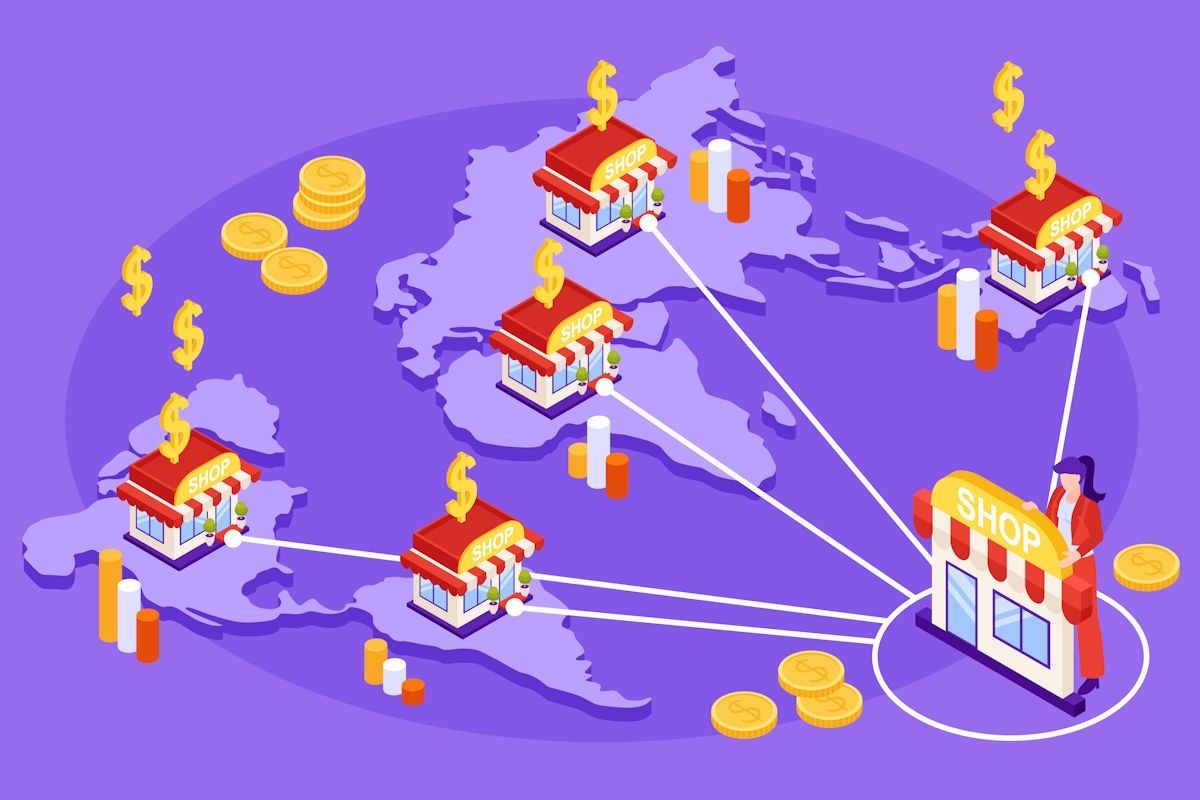AI Integration in Business Operations: From Chatbots to Predictive Analysis
AI is no longer knocking on the door of business—it’s already inside, rearranging the furniture. In 2025, artificial intelligence has shifted from a buzzword to a backbone of competitive strategy. From streamlining operations to decoding customer behavior, AI is redefining how companies think, act, and grow. Businesses that delay adoption aren’t just missing out—they’re falling behind. The race isn’t about who uses AI, but how intelligently they do it.
Entry Point: Chatbots in Customer Service
For many businesses, AI’s first footprint appears at the customer-facing front line: chatbots. What began as simple FAQ responders has evolved into intelligent, conversational systems capable of handling complex requests. In banking, healthcare, retail, and hospitality, chatbots now manage millions of daily interactions with precision.
The modern AI-powered chatbot can:
- Understand natural language: Using natural language processing (NLP), bots interpret intent, not just keywords.
- Offer personalized responses: By integrating with customer data, chatbots remember preferences, purchase history, and support tickets.
- Handle transactions: From booking flights to troubleshooting hardware issues, bots close the loop rather than just answering queries.
Take e-commerce as an example. Instead of forcing customers to browse endless catalogs, a chatbot can recommend products based on browsing history, previous purchases, and current promotions. In healthcare, virtual assistants now provide initial patient triage—collecting symptoms and guiding patients to the right care pathway—reducing strain on medical staff.
The value is twofold: customers get faster service, and companies reduce operational costs. But perhaps the deeper impact lies in scalability. A single chatbot can handle thousands of conversations simultaneously, something no human call center could achieve without massive expense.
Still, challenges persist. Chatbots can frustrate users when poorly designed, and over-reliance without human escalation points risks alienating customers. The key is balance—AI should enhance human service, not replace it entirely.
Scaling Up: AI in Process Automation
While chatbots may be the visible face of AI, the real transformation often happens behind the scenes. Businesses are increasingly turning to AI for process automation—eliminating inefficiencies and optimizing workflows across departments.
Routine Task Automation
AI integrated with robotic process automation (RPA) can handle repetitive tasks such as invoice processing, payroll validation, or compliance checks. Instead of humans manually keying in data, AI extracts, validates, and routes information automatically. The result? Reduced errors, faster cycles, and freed-up human talent for higher-value work.
Supply Chain and Operations
Manufacturers and logistics companies now lean on AI to optimize supply chains. Algorithms analyze demand forecasts, inventory levels, and external factors like weather or geopolitical risks to adjust production and distribution in real time.
For example, a logistics provider might predict delivery delays due to storms and reroute shipments preemptively. Retailers can prevent overstocking or understocking by letting AI forecast buying patterns with greater accuracy than traditional models.
Employee Productivity
Inside organizations, AI helps employees work smarter. Intelligent assistants draft reports, analyze contracts, and even summarize meetings. Instead of spending hours on administrative duties, staff can focus on strategy and innovation.
The broader implication is that AI is not just about replacing tasks—it’s about reshaping roles. Teams become orchestrators of AI-enabled processes rather than executors of manual ones. Businesses that embrace this shift unlock higher productivity and agility.
Strategic Shift: Predictive Analysis for Decision-Making
If chatbots represent the entry point and automation the backbone, predictive analysis is AI’s strategic brain. The ability to forecast trends, model scenarios, and prescribe actions is perhaps the most powerful advantage AI brings to modern businesses.
Forecasting Demand and Market Shifts
Retailers can predict which products will trend next season. Financial institutions anticipate credit risks. Energy companies model consumption patterns to optimize grid performance. Predictive models turn vast datasets into actionable foresight, giving organizations a head start on competitors.
Enhancing Business Intelligence (BI)
Traditional BI systems describe what happened. AI-driven BI goes further—telling organizations what will likely happen and what they should do about it. For instance, instead of reporting that sales fell last quarter, predictive analytics identifies why and suggests actions like adjusting pricing, targeting new segments, or shifting marketing spend.
Dynamic Adaptation
In highly volatile markets, predictive tools enable rapid responses. During supply chain disruptions, AI identifies alternative suppliers. When customer sentiment shifts, it signals marketing teams to pivot messaging. The strategic shift is from reactive management to proactive leadership.
Predictive analysis doesn’t eliminate uncertainty—but it narrows the margin of error, making decisions smarter and faster.
Challenges of Integration: Data, Security, and Culture
AI’s promise is vast, but integration is rarely seamless. Businesses face three recurring challenges:
- Data Quality and Availability
AI is only as good as the data it consumes. Many organizations struggle with siloed systems, incomplete records, or poor data hygiene. Before AI can drive value, companies must invest in robust data governance—cleaning, centralizing, and structuring information for meaningful analysis.
- Security and Malicious AI
As AI strengthens businesses, it also empowers attackers. The 2025 Bad Bot Report highlights that automated threats now make up over half of all web traffic, with malicious bots mimicking human behavior to bypass defenses. Cybersecurity strategies must therefore evolve, leveraging AI-powered detection to counter AI-powered threats.
- Organizational Culture and Skills
AI integration isn’t purely a technical challenge—it’s cultural. Employees may resist automation out of fear of redundancy. Managers may lack the expertise to trust machine-driven insights. Overcoming this requires:
- Transparent communication about AI’s role.
- Upskilling programs to reskill employees.
- A leadership-driven culture that frames AI as augmentation, not replacement.
Without cultural readiness, even the best AI tools risk underutilization.
The Future of AI-Driven Operations
Looking ahead, AI is set to expand its footprint deeper into business operations, shaping the next decade of competitive strategy.
Hyperautomation
The convergence of AI, RPA, and advanced analytics will enable end-to-end automation of complex workflows. Imagine an insurance claim process where AI receives the claim, validates documents, detects fraud, calculates payouts, and initiates disbursement—without human intervention.
Personalization at Scale
AI will drive hyper-personalization in both B2C and B2B markets. From custom product recommendations to individualized pricing models, businesses will treat each customer as a market of one.
Conversational and Voice AI
The next wave of chatbots will go beyond text, integrating voice, video, and even emotion recognition. Customer support may soon involve AI agents capable of empathetic, context-rich conversations.
AI for Sustainability
With ESG goals gaining importance, AI will play a pivotal role in energy optimization, waste reduction, and sustainable supply chain practices. Companies can reduce costs while advancing environmental responsibility.
Human + AI Collaboration
The most successful organizations will be those that position AI not as a replacement but as a partner. Human creativity and judgment, amplified by AI speed and accuracy, create a powerful synergy. This future isn’t about humans versus machines—it’s about humans with machines.
Conclusion
AI integration in business operations has moved from the periphery to the core. It begins with chatbots improving customer service, scales through process automation, and culminates in predictive analysis guiding strategy. Yet the journey is not without obstacles—data quality, cybersecurity, and organizational culture remain critical barriers.
For leaders, the imperative is clear: adopt AI intelligently, responsibly, and strategically. Companies that embrace AI as a partner in operations will not only survive disruption but set the pace for their industries. Those who hesitate risk being left behind.
In 2025 and beyond, AI isn’t just a tool—it’s the new architecture of business.













































